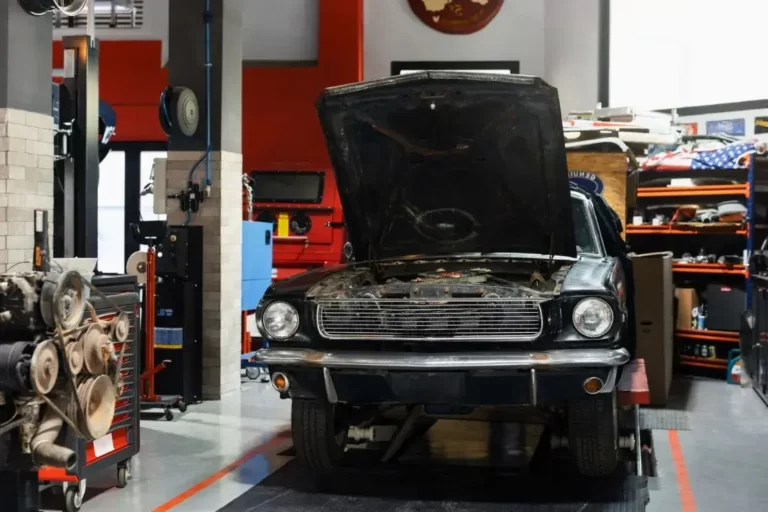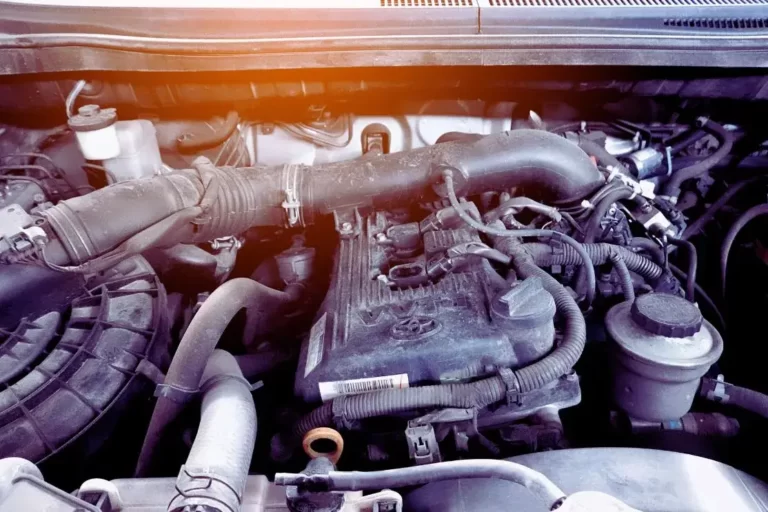What Are 5 Ways To Improve A Vehicle’s Fuel Efficiency
Improving your vehicle’s fuel efficiency is a great way to reduce emissions and save money. Based on the recommendations of various automotive and fuel efficiency experts, we will share five critical practices that, if you use them, can improve your car’s or truck’s performance. From simple tweaks like keeping up with regular maintenance to more advanced upgrades such as installing a cold air intake system, these methods are sure to help boost your miles per gallon (MPG). Let’s dive in and explore how each of these strategies works!
Regular Vehicle Maintenance
Ensuring your vehicle undergoes regular maintenance is crucial to improving its fuel efficiency. A consistent servicing schedule will guarantee all components are performing optimally, preventing a lack of lubrication or dirty filters from compromising your engine’s performance. An engine tune-up is also vital as it can extend the life cycle of spark plugs, air filters, and other parts, thus enhancing fuel economy.
By prioritizing routine maintenance tasks such as topping off fluids, changing the oil on time, rotating tires routinely, and replacing worn hoses or belts, you can reduce unnecessary wear and tear on critical systems within the car’s drivetrain. This minimizes drag caused by friction and increases overall driving efficiency.
A well-maintained vehicle runs more efficiently and can save up to four per cent in fuel costs yearly compared to one without regular upkeep. While regularly scheduled services may incur upfront charges, they will be worthwhile in the long run due to improved fuel mileage levels.
Tire Pressure and Wheel Alignment for Optimal Vehicle Performance
To maximize a vehicle’s fuel efficiency, paying attention to tire pressure and wheel alignment is crucial. Consistently monitoring tire pressure guarantees that the tires remain inflated to the appropriate level, resulting in better fuel economy. Additionally, with tires performing at their best, the need for tire replacements decreases.
Moreover, even contact between the wheels and the road surface is essential for optimal vehicle performance. Proper wheel alignment ensures that tires do not wear unevenly or rub against the pavement, leading to improved traction and superior car handling while reducing drag and increasing fuel savings.
Lastly, regular wheel alignments prolong the lifespan of suspension system parts such as shock absorbers and ball joints. Besides enhancing vehicle performance, a well-maintained suspension system provides smoother rides with less vibration.
Upgrade Your Air Filter
Replacing your vehicle’s air filter is a straightforward and often neglected method of enhancing fuel efficiency. It is crucial to upgrade the air filter routinely, as outdated or obstructed filters can result in a pressure drop in the engine intake, reducing the airflow and oxygen available for combustion. Consequently, this can lead to lower engine power, fuel consumption, and increased emissions. Furthermore, outdated or clogged filters can damage the particulate petrol filter (PPF), which traps harmful pollutants from the exhaust gas. PPFs are fitted to many new cars in Australia to meet strict emissions regulations. They require low-sulphur fuel to operate correctly. Suppose the air filter is not replaced regularly. In that case, it can allow more sulphur to enter the PPF, which can cause clogging and malfunction.
Cabin filters are designed to filter out fine particles, allergens, and odours but require maintenance and periodic replacement. Additionally, outdated or clogged filters can negatively affect the air-conditioning system’s performance, reducing air quality and flow inside the cabin. This can make the driving experience uncomfortable and increase the risk of respiratory issues.
When you upgrade your air filter, you ensure your engine has enough breathable air to operate efficiently. It ultimately reduces drag and optimizes the spark. The air filter you choose also matters; high-quality synthetic materials provide better protection against dirt particles that could enter your engine and cause damage than cheaper paper options. Synthetic filters can also last up to 50,000 miles for conventional paper models, compared to 12,000 miles, so you don’t have to worry about replacing them as frequently.
Aside from being inexpensive (you can purchase a good quality air filter for 10-20 dollars), replacing the air filter takes five minutes or less. If you’re looking for an easy fix that saves you money in the long run, upgrading your air filter is the way to go.
Use Fuel Additives
Incorporating fuel additives is an effective method to enhance a vehicle’s fuel efficiency and performance. These additives are available in diverse types, such as detergents, anti-icing agents, and lubricants, each with distinct advantages.
Detergents are crucial in cleaning the fuel system and improving overall performance. Anti-icing agents, on the other hand, help prevent fuel from freezing in cold environments. Lastly, lubricants help minimize engine friction, leading to better fuel efficiency.
Types Of Fuel Additives
It’s worth discussing the different fuel additives that can boost a vehicle’s fuel efficiency. Fuel economy boosters, for example, are intended to increase a vehicle’s mileage per gallon by lowering combustion temperatures and improving air/fuel ratios in engines.
Furthermore, there are octane boosters capable of raising the octane rating of gasoline, allowing for more efficient ignition timing parameters. Lastly, unique formulas on the market combine various detergents with friction modifiers, which can cleanse engine deposits while lubricating moving parts – leading to improved performance and increased fuel economy. However, using these products as directed is essential, as overuse may cause damage or result in reduced performance gains.
Utilizing high-quality fuel additives can enhance your car’s overall power output and longevity without compromising its ability to operate efficiently.
Benefits Of Fuel Additives
Fuel additives can significantly enhance vehicle performance and increase its lifespan. By cleaning out engine deposits, raising octane ratings, and reducing combustion temperatures, fuel additives can lead to better air/fuel ratios in engines. This translates to improved power output and reduced fuel consumption.
Some fuel additives are explicitly designed to boost fuel economy. In contrast, others combine detergents with friction modifiers to reduce wear and tear on the engine and improve gas mileage.
Furthermore, adopting simple driving habits, such as avoiding unnecessary idling and utilizing cruise control on highways, can further improve fuel efficiency.
Automotive experts emphasize the importance of engine maintenance. Therefore, using high-quality fuel additives regularly is crucial to keep your car’s engine in optimal condition.
Install A Cold Air Intake System
Installing a cold air intake system is one of the most effective ways to improve your vehicle’s fuel efficiency. You can optimize engine tuning and maximize fuel economy by incorporating a cold air intake.
A cold air intake system enhances performance by increasing airflow into the combustion chamber, resulting in greater power output, increased torque, and improved gas mileage.
The system’s core component is aluminium or plastic tubing that extends from the filter box to the throttle body. The tube pulls in cooler external air and feeds it directly into the engine. Cooler temperatures provide:
- Denser oxygen molecules.
- Making them more combustible than hot air.
- Resulting in a higher octane-like effect on gasoline engines.
Furthermore, improved combustion efficiency and reduced exhaust emissions lead to increased horsepower gains.
Installing a cold air intake system can significantly improve your driving experience, including better acceleration, torque, and fuel economy. Without sacrificing engine reliability or longevity, you can expect noticeable results over time and long-term savings at the pump!
Change Your Driving Habits
Changing your driving habits effectively improves your vehicle’s fuel efficiency without any significant investments or modifications. You can reduce emissions and increase miles per gallon by adopting fuel-saving tips and eco-friendly driving techniques.
Gradual acceleration from stops instead of full throttle keeps engine revolutions low, resulting in improved gas mileage. Planning your route ahead of time can help avoid unnecessary side trips and traffic jams, leading to additional fuel savings. Furthermore, utilizing cruise control when possible helps maintain a steady speed for long distances, minimizing fuel consumption.
By implementing these steps, you can increase freeway speeds by up to 10% while ensuring maximum fuel efficiency and reducing harmful emissions. By consciously driving efficiently, you can do your part for the environment while ensuring that your vehicle runs at its most efficient level.
Conclusion
Following these five steps can improve your vehicle’s fuel economy and achieve better gas mileage. Regular maintenance is essential to ensure your car runs efficiently. Keep your tire pressure in check and upgrade your air filter to optimize your engine’s performance. It’s also noteworthy that fuel additives can help boost performance and save on gas when used appropriately. Installing a cold air intake system and modifying your driving habits can also lead to significant savings at the pump. With this knowledge, you have the tools to get the most out of every gas tank.
Frequently Asked Questions
Q: What are five ways to improve a vehicle’s fuel efficiency?
A: There are many simple ways to improve a vehicle’s fuel efficiency, including driving smoothly and avoiding accelerating too quickly, getting regular maintenance, lightening the load of your car, driving the speed limit, avoiding roof racks and idle, limiting lead foot acceleration and revving up the engine more than necessary, checking the tire pressure regularly, and scheduling regular service for your vehicle.
Q: What are some simple ways to improve fuel efficiency?
A: Some simple ways to improve a vehicle’s fuel efficiency include driving smoothly and avoiding accelerating too quickly, getting regular maintenance done on your car, lightening a load of your vehicle by eliminating unnecessary items from the trunk or roof racks, driving the speed limit when possible and avoiding idling for long periods. Additionally, it would be best to try limiting lead foot acceleration and rev up the engine more than necessary.
Q: How can I improve my fuel efficiency?
A: Improving fuel efficiency begins with proper maintenance of your vehicle. Regular oil changes are essential to ensure that your engine is performing optimally. Smooth driving, without accelerating too quickly, can also help reduce fuel consumption. Reducing the weight of your vehicle by removing unnecessary items from the trunk or roof racks can also help increase fuel efficiency. Additionally, driving at the speed limit whenever possible and avoiding extended idling will contribute to fuel savings..
Q: What are some simple ways to reduce your fuel consumption?
A: Reduce fuel consumption by driving slower (up to 20% better gas mileage), inflating tires correctly to reduce resistance, keeping windows closed on highways, planning errands to avoid traffic, using cruise control on highways, turning off AC at low speeds, minimizing brake usage by slowing down gradually, combining trips, removing rooftop racks and excess weight, turning off engines when parked for a while, using lower gears when climbing hills, and avoiding excessive acceleration.
Q: Are there any other ways I can save on gas prices?
A: Yes! Please make sure you get your car serviced regularly so that it is running efficiently. You should also look into alternative fuels, which may cost less than gasoline or diesel. Additionally, try walking or biking whenever feasible instead of relying on an automobile so you don’t have to worry about paying for gas! Finally, consider telecommuting if it’s an option – this way, you won’t have to pay for gas while commuting.
Q: How do I get better gas mileage while driving a manual car?
A: If you’re driving a manual car, there are several steps you can take to get better gas mileage. First, make sure you’re shifting gears at optimal times – shift into higher gears earlier rather than later to conserve energy. Additionally, try to slow down so that less energy is used overall. Finally, ensure you’re coasting down hills wherever possible – this will help conserve energy over time.
Q: What are some simple ways I can improve my car’s Fuel Efficiency?
A: To improve your car’s fuel efficiency, maintain it regularly through oil changes and tune-ups to optimize engine performance and prevent wear on essential components like spark plugs and filters. Drive smoothly, avoiding rapid accelerations that burn excess fuel, by gradually changing speeds instead of pressing hard on the accelerator pedal. Adhering to speed limits set by authorities can also improve fuel efficiency regardless of other factors like weight or terrain.







